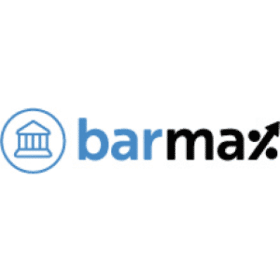 Passing the Bar Exam
Passing the Bar Exam
According to the American Bar Association, almost all law school graduates in the United States must apply for bar admission through a state board of bar examiners to practice law in that state.
Each state is allowed to set its own requirements, which means that the bar examination and admission to the bar can vary from state to state. While content can change depending on your locale, the following information is a general overview of what you can expect when studying for the bar exam.
See the Top BAR Review Courses
- 1. BarMax Review Course ◄◄ Best Overall BAR Review Course + No Discounts
- 2. Quimbee BAR Prep Course ◄◄ Best Price
- 3. Kaplan BAR Review Courses ◄◄ Expert Instructors
What is the Bar Exam
The bar examination is the exam you have to pass in order to receive a state license to practice law. Because each state sets its own eligibility requirements regarding the exam and its content and requires knowledge of specific state and local law, you have to pass the bar exam in each state you intend to practice.
Bar Exam Requirements
Most states require you to pass educational and moral/ethical standards, which are also individually determined by each state. You should expect to provide references and undergo a background check. You should also expect the state to require verification of your degree or educational credits. See our Bar Requirements by State page and consult the website of the state bar to which you wish to be admitted for details.
Bar Exam Parts and Formats
Bar exams are typically divided into several sections, one of which is completely dependent on the state. These sections include 1) the Multistate Bar Examination (MBE), 2) a state-specific portion on local state law, and 3) a Multistate Performance Test (MPT). Each portion of the test is held on a different day. Many states hold a two or three-day bar examination, and you may have to take additional smaller tests, such as the Multi State Essay Examination (MSEE) or the Multistate Professional Responsibility Examination (MPRE) to be admitted to that state’s bar. The Uniform Bar Examination (UBE) is prepared by the National Conference of Bar Examiners and has been adopted by 15 of the 50 United States as their official bar exam curriculum. This standardized bar exam includes an MBE, MPT, and the Multistate Essay Examination (MEE).
MBE – The MBE is a full-day test that is conducted over six hours. It is divided into two three-hour sections of 100 questions each, for a total of 200 questions. The exam covers criminal law and procedure, constitutional law, contracts, evidence, real property, and torts.
State Portion – This part of the exam includes local law specific to that state and is often tested in the form of essay or short answer questions. It is commonly taken on the same day as the MPT.
MPT – This portion of the exam consists of one or two 90-minute sessions. Test takers are required to sort detailed and relevant facts, analyze statutes and cases for relevant legal principles, apply relevant laws to the relevant facts, identify and resolve ethical dilemmas, and communicate such items effectively in writing to demonstrate the fundamental skills all lawyers are expected to have.
MPRE – This two-hour multiple-choice exam consists of 60 questions and tests established standards for professional conduct and responsibility.
MEE – This test consists of six 30-minute essay questions that ask test takers to consider a hypothetical situation and apply their understanding of relevant legal principles. Topics will vary.
Learn More About The BAR Exam
- Take These Steps To Pass The Bar Exam!
- How To Crush The Essay Portion Of The Bar Exam
- How To Study For The BAR While Working Full Time!
- How To Pass The BAR After Failing The First Time
- How To Become A Lawyer
Bar Exam Study Materials
Even if you attended a prestigious law school, it is important to prepare yourself adequately for the bar exam to ensure that you pass. Many state bar exams include local law that may not have been covered in your law school classes, and you may have to learn additional material in order to pass the bar. Choosing the best way to prepare for the bar exam depends on your learning style and habits, your ability to communicate your knowledge in writing in a test environment, and your financial situation. Whatever your learning style however, be sure to choose the bar prep course that will best fit you.
Study Tips
Studying for the bar is an important step in your legal career. In order to become licensed to practice law in your state or jurisdiction, you must pass the bar exam in addition to earning your JD. First-time pass rates vary from 40% to over 80%, depending on the state and the school you attended. You should:
- Familiarize yourself with all sections of the bar exam in your state
- Study all subjects that the bar exam in your state is likely to cover
- Use free materials that help you learn all the information you will need to know
- Stick to a study schedule
- Take a full-length practice bar exam
- Train yourself to be able to write essays for a minimum of three hours
- Practice sitting and answering questions for a minimum of three hours
- Practice reducing stress. Many students fail the bar exam because they succumb to stress. Consider various stress-management techniques, such as exercise and meditation, to clear your mind while you study for and take the bar exam.
Get Discounts On BAR Review Courses!

Enjoy Up to $400 Off on BarMax Course

Crushendo Coupon: 10% Off Bar Prep Products
Study Options
Practice Bar Exam – Practice bar exams are readily available and are an excellent preparation for taking the actual exam. Although you should also use additional study materials and books, video lectures and/or a commercial bar review course, a practice bar exam allows you to evaluate your level of preparedness.
Bar Review Course – A bar review course or prep course often includes online study options that offer a set study schedule and curriculum, review materials and practice tests, and tutors or advisers to help you learn everything you need to pass the exam. Many courses cover information specific to the state portion of the exam, which is helpful if you have to learn new legal material for a particular state. Most bar review courses include recorded or live video lectures and extensive online content and materials. Check out the best online prep courses here.
Bar Exam Books – Various bar exam study books are available online or in print for free or for a nominal fee. State bar organizations often publish books or online links to essay questions and material from previous exams to help you study. Studying on your own is a more affordable option than taking a bar review course, however, it requires more organization and motivation to study by yourself, and you won’t have the same level of support from instructors or test prep experts if you have questions.
Flash Cards – Flash cards are an effective way to remember the large body of facts covered on the bar exam. You can make your own, find them online, or purchase commercial bar exam flash cards. If making your own, you should consider using questions and answers from actual bar exam questions to ensure that you are memorizing relevant material.
Bar Exam Study Schedule
A study schedule is vital to your success in studying for the bar exam. Your bar exam study schedule should include time allotted for studying each section that will appear on the exam as well as a certain number of hours per day. Creating and sticking to a study schedule allows you to fit in all of the required information without missing an important area. A successful study plan integrates periods for study and rest with your daily responsibilities, allowing you to plan around working out, eating, your job (if you are working), taking care of family responsibilities, and leisure. You should dedicate a few hours of free time each day to refocus and keep yourself motivated.
Although the bar exam varies among states, you can prepare yourself to pass in any state on the first try by taking an organized and diligent approach to studying. You should identify the specific material that is covered on the exam, determine the best way for you to learn that material, and then commit to a regular study schedule on your own or with a bar review course. Identifying the right study method and materials for you can play a decisive role in your bar exam success.

Valerie Keene is an experienced lawyer and legal writer. Valerie’s litigation successes have included wins for cases involving contract disputes, real property disputes, and consumer issues. She has also assisted countless families with estate planning, guardianship issues, divorce and other family law matters. She provides clients with solid legal advice and representation.




